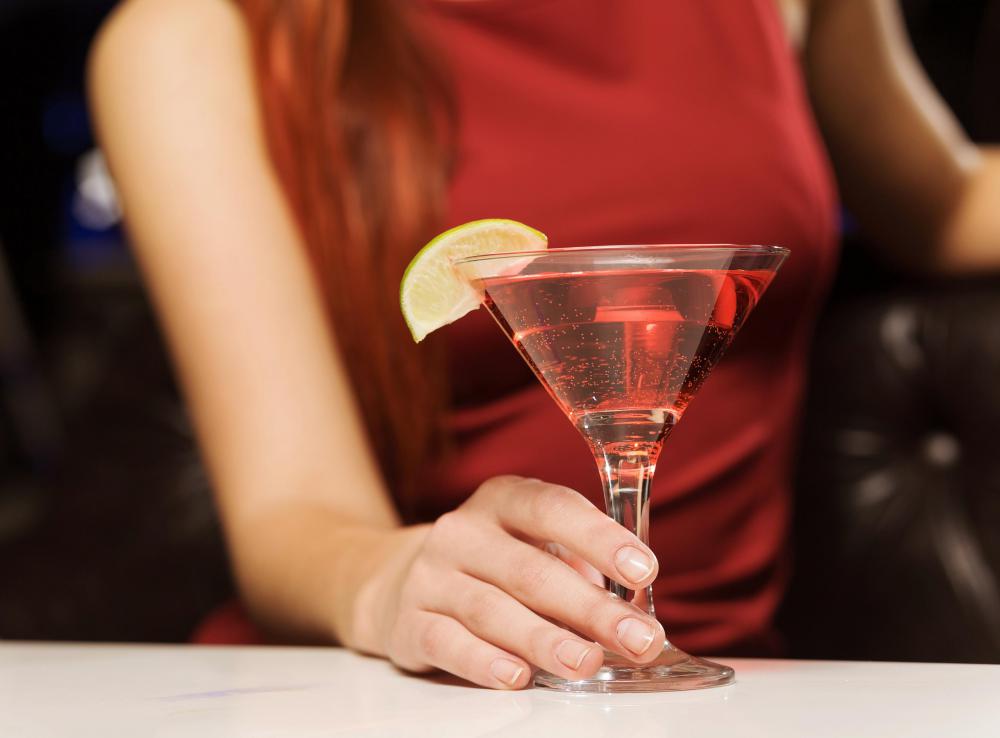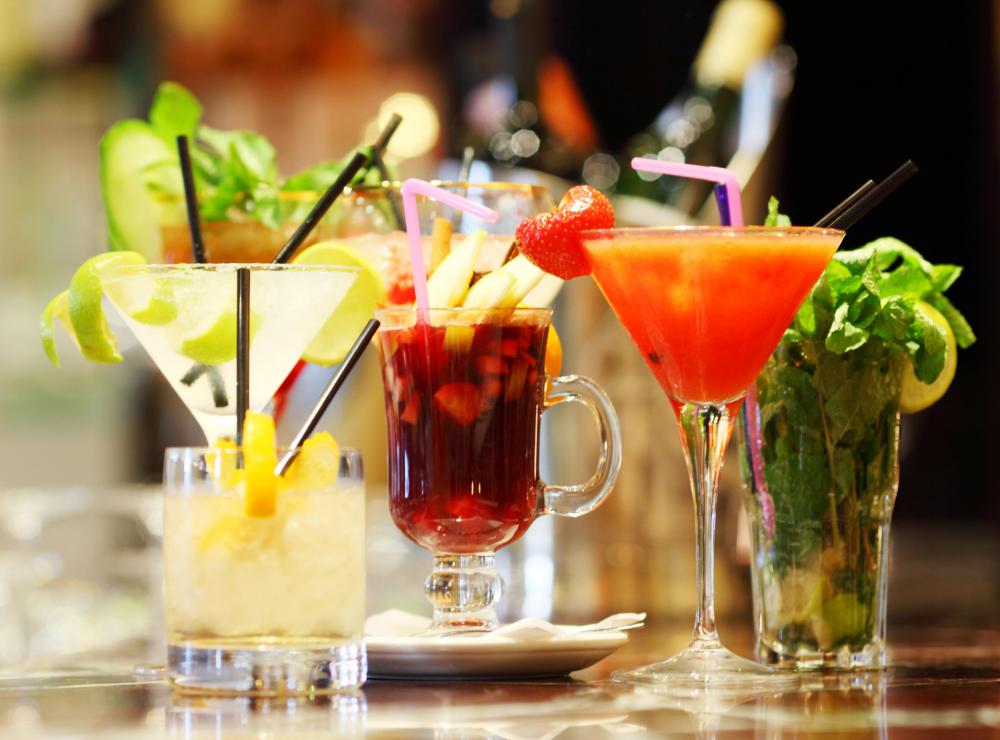At WiseGEEK, we're committed to delivering accurate, trustworthy information. Our expert-authored content is rigorously fact-checked and sourced from credible authorities. Discover how we uphold the highest standards in providing you with reliable knowledge.
What is the Connection Between Alcohol and Hypoglycemia?
There is substantial proof that alcohol and hypoglycemia are indeed linked. Alcoholism or the excessive drinking of alcohol has been proven to lead to hypoglycemia. With the body concentrating all of its efforts on breaking down recently consumed alcohol, it becomes incapable of producing an adequate amount of blood sugar, or glucose.
Hypoglycemia is, quite simply, low blood sugar. The essential sugar called glucose is the primary form of energy for the human body. When the supply of glucose to the brain becomes too low, it can result in the impairment of various brain functions. This is known as neuroglycopenia.

The correlation between alcohol and hypoglycemia is one of direct effect. Though the human body is quite resilient and capable of doing numerous activities at once, processing alcohol inhibits the liver's ability to function. This means that the liver is incapable of producing as much glucose as it should, resulting in drastically increased chances of hypoglycemia.

The majority of the time, it is alcoholism and not moderate consumption of alcohol that leads to low blood sugar rates. When one drinks in excess on a regular basis, the liver is no longer capable of catching up to the necessary rate of glucose production. At first, this behavior can lead to brief or temporary hypoglycemia, which usually does not produce any lasting effects, although it can temporarily alter the brain's responses to additional hypoglycemia. Eventually, after many years of alcoholic behavior, the liver can become used to this behavior and alter its glucose production permanently.

Alcohol and hypoglycemia are not inseparable, though, because hypoglycemia does not happen every time alcohol is consumed. Brief periods of hypoglycemia typically occur when too much alcohol is imbibed on an empty stomach. These initial temporary lapses into low blood sugar can be curbed or prevented by eating or snacking prior to intoxication.
There are other preventative measures that can be taken to curb the cause of and effect of alcohol and hypoglycemia, such as regular exercise. A carefully constructed diet is also advisable. Eating a wide assortment of foods, especially foods high in fiber, and leaving out refined carbohydrates, which include white flour and the sugars found in donuts, cookies and other sweets, means an increased resistance to becoming hypoglycemic.

If a person is experiencing a hypoglycemic episode, several symptoms will begin to display. When the person is in danger of passing out, these indicators become present: intense hunger, inexplicable perspiration, nervousness, sleepiness or feeling light-headed and difficulties speaking or exhibiting motor skills. When a bout of brief hypoglycemia hits, one need do little more than to stop drinking, rest and eat.
AS FEATURED ON:
AS FEATURED ON:

















Discussion Comments
I think we need to distinguish between true hypoglycemia and what feels like hypoglycemia. Hypoglycemia is when blood sugar levels are lower than normal. But someone who has normal blood sugar levels may also experience symptoms of hypoglycemia if the sugar does not reach the brain. That is, if the pancreas or if insulin is not functioning normally, the brain can be left without energy despite the fact that there is plenty of sugar in the blood.
@stoneMason-- Blood sugar and how it changes in different situations is actually difficult to understand.
It's true that foods and drinks high in sugar will cause blood sugar to increase, but that's only if someone's liver is functioning properly. Alcohol leads to hypoglycemia when the liver is not functioning properly due to alcohol consumption. The article already described the details. Someone who drinks regularly but whose liver is still functioning in a healthy way may never experience hypoglycemia.
I do think that those who drink alcohol regularly are at an increased risk of metabolic disorders however. You are right, diabetics are encouraged not to drink. Drinking often and on an empty stomach may actually lead to diabetes in the long run. Because as blood sugar fluctuates suddenly from the alcohol, the body develops insulin resistance. This causes sugar levels in the blood to increase.
I would have thought that alcohol would lead to hyperglycemia rather than hypoglycemia. Alcohol contains sugars and is high in calories. So technically, it should increase blood sugar rather than cause it to drop. Isn't this why diabetics are encouraged not to drink?
Post your comments